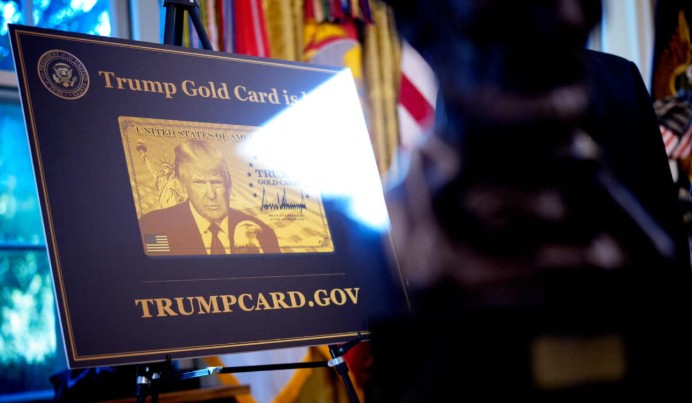President Trump Signs Executive Orders Targeting H-1B Visas, Launches High-Priced “Golden Card” Program

In a sweeping new immigration policy shift, U.S. President Donald Trump has signed two executive orders dramatically altering the landscape for foreign skilled workers and wealthy immigrants.
Under the first directive, applicants to the H-1B visa program which allows U.S. companies to employ foreign workers in specialized fields must now pay an additional $100,000 fee. The second order introduces a new “Golden Card” program offering expedited immigration to individuals who invest at least £1 million (approx. $1.3 million USD) into the U.S. economy.
Massive Fee Hike for H-1B Visa Applicants
Effective immediately, all new H-1B visa applications will be put on hold until the $100,000 payment is made, according to the White House briefing. The administration says the move is intended to ensure that foreign workers are not undercutting American jobs and to fund domestic workforce programs.
“For too long, American workers have been forced to compete with low-cost labor imported from abroad,” President Trump said. “We are putting American talent first and ensuring only the best and most committed applicants come to our country.”
The H-1B program has been a critical pipeline for U.S. companies especially in tech, healthcare, and engineering to hire international talent. Industry leaders, including Tesla and SpaceX CEO Elon Musk, have previously defended the program, arguing that it is essential to U.S. innovation and competitiveness.
“If America doesn’t bring in top global talent, that talent will go to China, India, or Europe,” Musk posted on X (formerly Twitter), adding that the new fee may “strangle startups.”
Golden Card: Fast-Tracked Visas for the Ultra-Wealthy
Trump’s second executive order establishes a new “Golden Card” visa program a pathway for ultra-wealthy foreign nationals to receive expedited U.S. residency and work authorization in exchange for a substantial investment.
Key details of the Golden Card program include:
Minimum investment of £1 million (~$1.3M USD) in approved sectors
Fast-tracked processing for permanent residency (green card)
Eligibility for U.S. citizenship within 3–5 years
Critics argue the policy favors the rich and commodifies the immigration process.
“We are turning U.S. citizenship into a luxury item,” said one immigration rights advocate. “This undermines the principle of equal opportunity and opens the door for more corruption and inequality.”
Divided Reactions: Nationalism vs. Globalization
The dual orders reflect Trump’s long-standing “America First” stance on immigration, rooted in economic nationalism and workforce protectionism. Supporters say the changes will reduce abuse of the H-1B system and bring in high-value investors, while opponents warn of brain drain, workforce disruption, and discrimination against lower-income applicants.
Economists have also expressed concern that the sudden cost spike could have a chilling effect on U.S. startups and mid-sized companies that rely on H-1B workers but cannot afford the inflated fees.
“You’re effectively slamming the door on foreign PhDs, engineers, and researchers,” said a spokesperson for the American Immigration Council. “This doesn’t help the American worker it isolates them.”
What Comes Next?
Legal challenges to both executive orders are already being prepared. Several immigration advocacy groups and civil rights organizations say they will challenge the new fees as unconstitutional and discriminatory, while business associations are expected to lobby for revisions or exemptions.
Congressional Democrats have also criticized the move, calling it an attempt to “auction off” American immigration policy.
Meanwhile, the Department of Homeland Security is expected to release formal implementation guidelines for both programs within the next two weeks.
